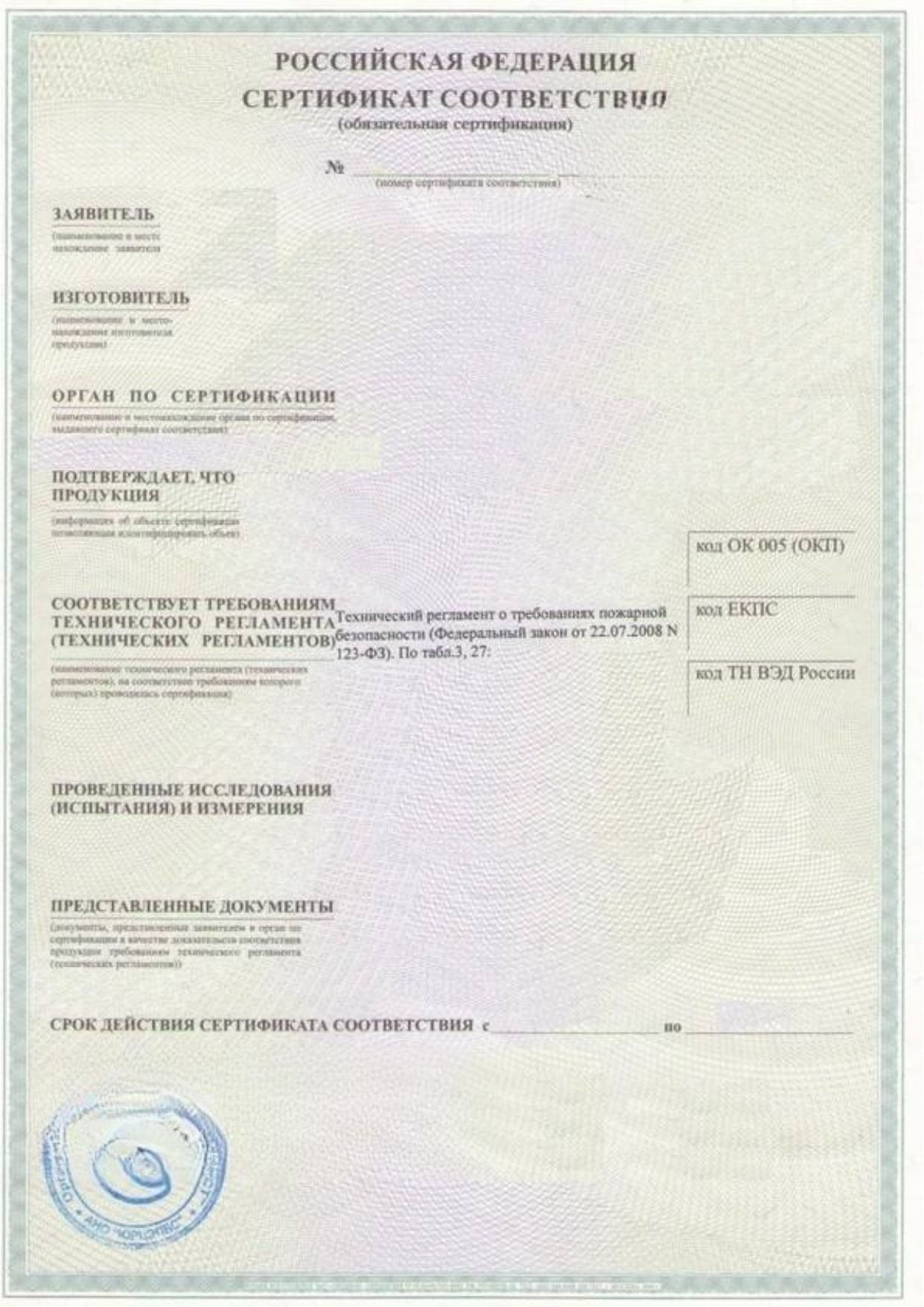The oldest GOST certificate, dating back to the Soviet era, is still being issued today, mainly to assess fire resistance.
What is a Mandatory GOST R Certificate of Conformity?
The GOST R Certificate of Conformity was originally defined under Federal Decree No. 982 of December 1, 2009 («О едином перечне продукции, подлежащей обязательному подтверждению соответствия»). This decree listed products that were subject either to a Mandatory GOST R Certificate or to a GOST R Declaration of Conformity within the Russian national system.
Although the regulatory framework was replaced in 2022 by a more recent decree, the Mandatory GOST R Certificate still applies to several product categories today. Among these, one group clearly stands out:
Products requiring fire protection – where specific safety performance is critical.
There are other categories as well, such as construction products (which in Europe would normally fall under CE Marking). But apart from weapons (outside our scope), the overwhelming majority of mandatory GOST R Certificates are in fact GOST R Fire Certificates.
Other types of certificates – sometimes referred to, perhaps improperly, as GOST R Certificates – include:
What documents are required?
As with any conformity procedure, you will need to provide the technical documentation of the product (manuals, datasheets, quality certificates, etc.). However, in the case of the mandatory GOST R Certificate there are two non-negotiable requirements:
- Testing in Russia – this is compulsory, regardless of previous tests and internal testing.
- Initial audit – an inspection of the production site is required before the certificate is issued.
Depending on the chosen duration of the certificate, annual audits may also be required to keep it valid.
How long is it valid?
A Mandatory GOST R Certificate can be issued for:
- A single contract
- 1 year
- 3 years
- 5 years
Is the GOST R Certificate accepted outside Russia?
Of the three main GOST R certifications, this is the one most often accepted beyond Russia’s borders. Some neighboring countries in the EAEU recognize it, and even outside the Union it can play a role. For instance, in Uzbekistan it is common for authorities to request the Russian GOST Fire Certificate.
That said, acceptance always depends on the local customs authority. It is highly recommended to confirm with your importer or a trusted customs broker whether a Russian GOST R Certificate will be valid for clearance in another country.
Free Certificates Review
- Validation of your current certificates
- Regulatory update check
- Guidance on renewal
